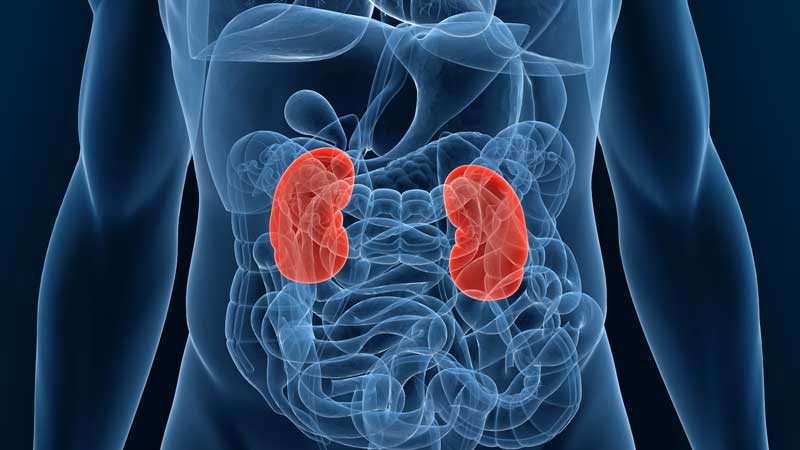
There are many forms of kidney disease; such as kidney stones and kidney failure, which slows down and continuously differentiates kidney function and leads to kidney failure in some patients; in other patients, the course of the disease is benign and renal function is not lost.
In patients with chronic kidney disease, the estimated GFR of the patient should be consistently low in several blood samples collected separately over a three-month period. (GRF is estimated to be less than 60.)
When a patient is diagnosed with chronic kidney disease or CKD, nutritional-medical treatment is started to prevent the disease from progressing as well as to reduce symptoms.
Risk factors for chronic kidney disease
-
Diabetes
-
High blood pressure
-
Glomerulonephritis (inflammation of the glomeruli)
Stages of chronic kidney disease
The national kidney foundation divides chronic kidney disease into five stages based on an estimated GFR:
Stage1
in the first stage of chronic kidney disease, the eGFR (estimated GFR) is between 90 and 130 ml/min. In the first stage of chronic kidney disease, we have kidney damage, but the renal function is increased or normal.
Stage2
In the second stage of chronic kidney disease, the level of eGFR is between 60 and 89 ml/min. In the second stage of chronic kidney disease, we have a slight decrease in kidney function.
Stage3
In the third stage of chronic kidney disease, the eGFR rate is between 30 and 59 ml/min. In the third stage of chronic kidney disease, we have a moderate decrease in renal function.
Stage4
In stage fourth chronic kidney disease, eGFR is between 15 and 29 ml/min. In the fourth stage of chronic kidney disease, we have a severe decrease in kidney function.
Stage5
In the fifth stage of chronic kidney disease, the eGFR rate is less than 15ml/min. In the fifth stage, kidney failure is to the extent that dialysis is required. Also, a kidney transplant is performed, otherwise, it will lead to death.
Different nutritional treatments may be suggested at each level of chronic kidney disease.
Appropriate nutritional recommendations for patients with chronic kidney disease
To manage chronic kidney disease (CKD) you need to change your diet. Therefore, patients should consult a nutritionist. The following steps will help you get the right nutrition when managing kidney disease.
Stage1
-
Choose foods that are low in salt and sodium.
-
To help control your blood pressure, your diet should contain less than 2300mg of sodium daily.
-
Use other spices instead of salt.
-
Look for food labels with words like no sodium or no salt.
Stage2
-
Use different protein sources with appropriate amounts (low).
-
Animal protein foods:
o Chicken
o Fish
o Meat
o Egg
o Dairy
-
Vegetarian protein foods:
o Beans
o Nuts and fragrant
o Grains
Stage3
Choose foods that are healthy for your gut and prevent fatty depositions in the blood vessels, heart, and kidney:
-
Before eating, remove the fat from the meat and the skin from the chicken.
-
Try to limit saturated and trans fats. Read food labels.
-
Fish
Stage4
-
Choose foods and beverages that are less nutritious.
-
Low phosphorus foods:
o Fresh fruits and vegetables
o Bread, pasta, rice
o Cereals, corn, and rice
-
Foods rich in phosphorus:
o Meat, chicken, fish
o Whole grains and oats
o Beans, lentils, nuts
Stage5
-
Choose foods with the right amount of potassium (small amount).
-
Low potassium foods:
o Carrots, green beans
o White bread, pasta
o White rice
o Rice and cooked wheat grains
o Apple juice, grape juice, or blueberry juice
-
Foods high in sodium:
o Oranges, bananas, and orange juice
o Potatoes, tomatoes
o Brown rice
o Whole grains




